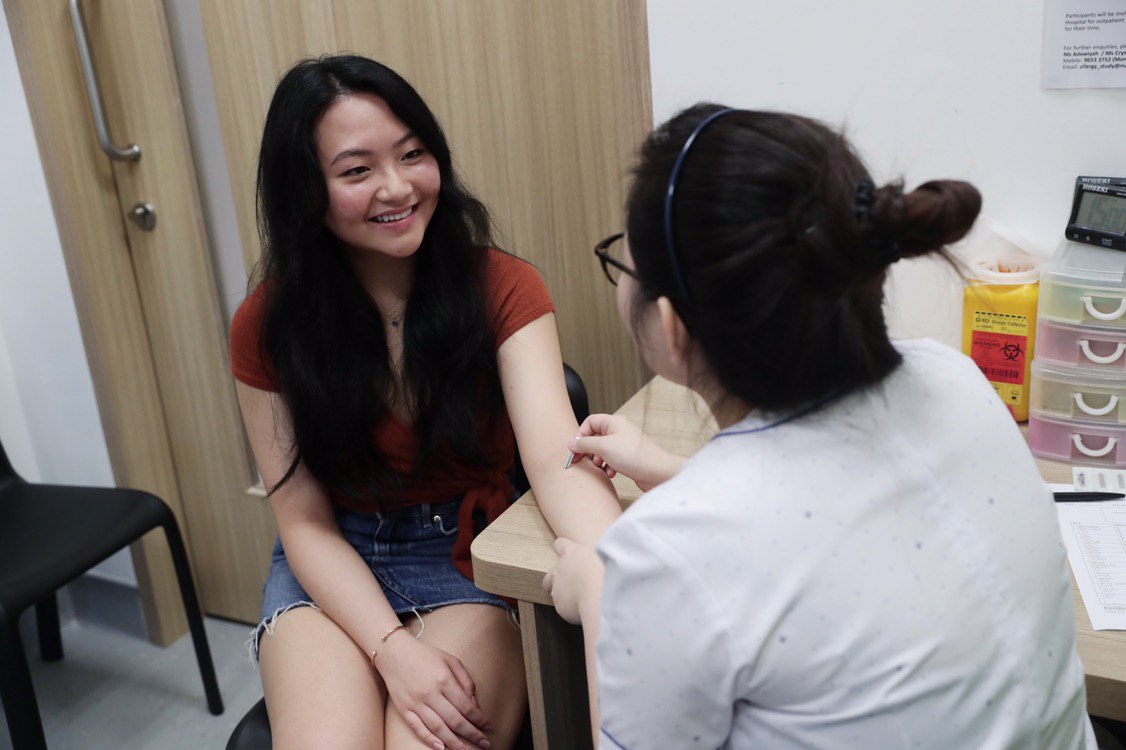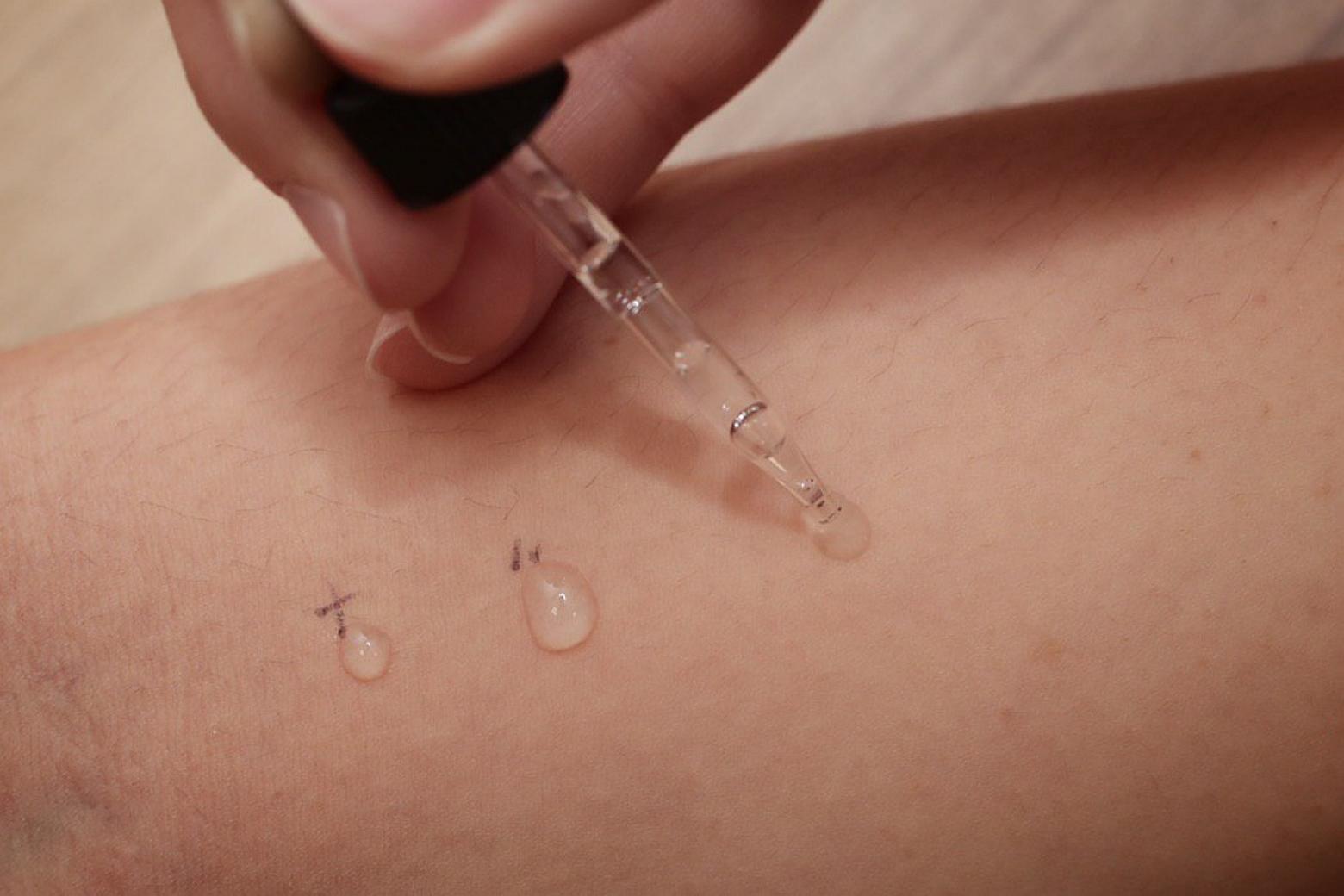National University Hospital co-launches first-of-its-kind study to help those who suffer from an egg allergy
Sign up now: Get ST's newsletters delivered to your inbox

Ms Kaylene Choe, who is allergic to eggs, having the skin prick test done on her by a nurse.
ST PHOTO: KELVIN CHNG
Timothy Goh
Follow topic:
SINGAPORE - Festive occasions are a time for feasting for many, but not so for Ms Kaylene Choe, who is allergic to eggs.
And those are not the only times the 18-year-old has to be extra careful about what she eats.
"I can't eat things without food labels and when people offer me food I have to tell them no unless they know my allergies. When I go out with my friends, I have to speak to the eatery staff to make sure there's no cross-contamination... It's really hard when I travel as well, because of the language barrier," she said on Friday (Nov 22).
But there may be hope for Ms Choe and others with egg allergies.
The National University Hospital (NUH) on Friday announced the first-of-its-kind study which aims to induce the remission of egg allergy.
Egg allergy is the most common food allergy among Singaporean children under the age of three. It is also the third most common cause of food-triggered anaphylaxis, a severe allergic reaction which can be life threatening, in the adult population behind shellfish and peanuts.
Those suffering from an allergy to eggs may react in a number of ways after consuming them, including rashes, swelling of lips and eyes, and even choking, low blood pressure, vomiting and difficulty breathing, said Dr Lydia Wong, the lead investigator in the Probiotic and Egg Allergen Immunotherapy study.
Although many children do eventually outgrow their condition, some recent overseas studies have found that up to 42 per cent of sufferers experience persistent egg allergy into adolescence, she said.
Dr Wong, who is also associate consultant at NUH's division of Paediatric Allergy, Immunology and Rheumatology, added that a 2018 study of a cohort of National Service pre-enlistees found that 4.3 per cent reported anaphylactic reactions from eggs.
"This tells you that there's still a group of people who continue to have persistent allergies (after growing up)," she said.

The head of the division, Dr Elizabeth Tham, who is also a consultant, noted that eggs are a major ingredient in Asian foods.
However, prior studies carried out by the Murdoch Children's Research Institute in Australia showed that probiotic and peanut immunotherapy treatment could provide long-term protection against peanut allergies. This could be for at least four years after treatment.
Dr Wong explained that food allergies occur when the immune system wrongly identifies food proteins as being harmful and causes a reaction against them.
"The aim of immunotherapy is to change the immune system's reaction towards this food protein by giving very small calculated doses of the protein on a strict schedule," she said, adding that probiotics helped to modify the body's immune response.
NUH is now working together with the Australian study team to extend this approach to eggs.
NUH aims to recruit 40 participants between five and 30 years old for the study. Over the course of 18 months, half of them would be given a daily dose of a specific probiotic together with egg oral immunotherapy while the other half would be give a placebo.
Currently, the only way to deal with egg allergies is strict avoidance of the product, or treatment of allergic reactions when they occur, said Dr Wong.
Egg oral immunotherapy has been shown to increase the amount of eggs a patient can eat, but only temporarily.
But the study aims to create a treatment that will hopefully protect a patient from his egg allergy long after treatment has concluded.
Dr Tham said that, if successful, the trial will be a boon for sufferers.
"The reduction of dietary restrictions will expand lifestyle options and allow individuals to increase the range of their culinary experiences and nutritional intake," she said.
For Ms Choe, it would mean finally being able to satisfy a craving: macarons.
"I think it's great they're doing this... If this works out it's going to help a lot of people," she said.
Those who wish to find out more about the trial can visit www.nuh.com.sg, contact allergy_study@nuhs.edu.sg or call 9653-3752.

